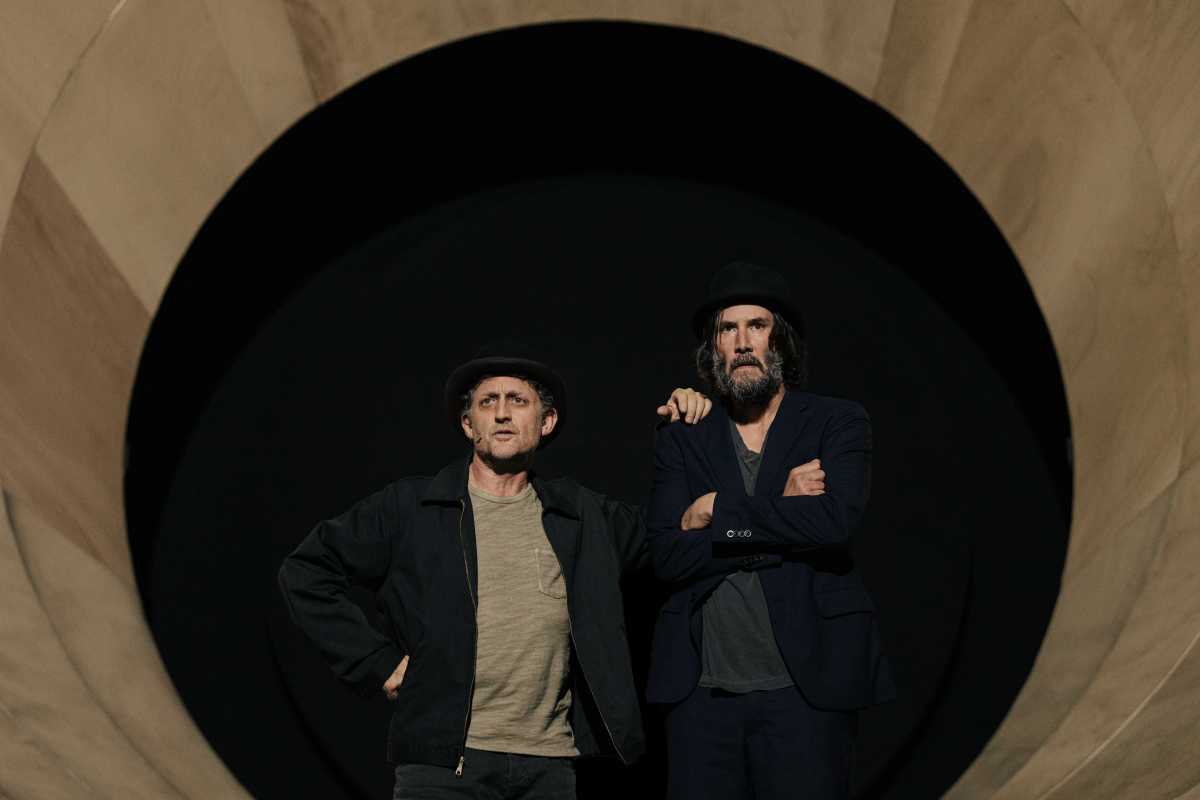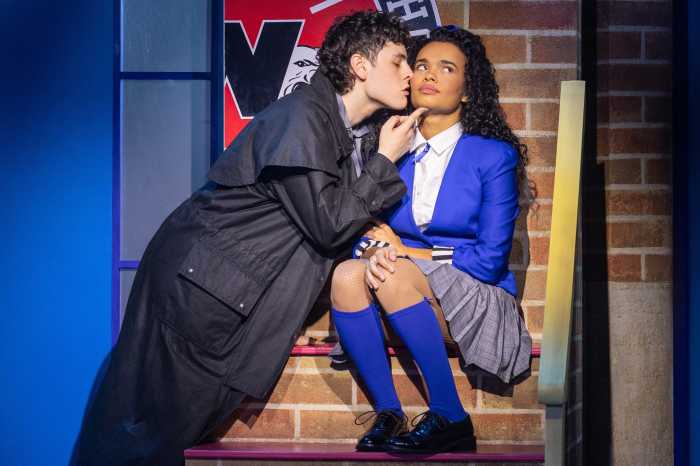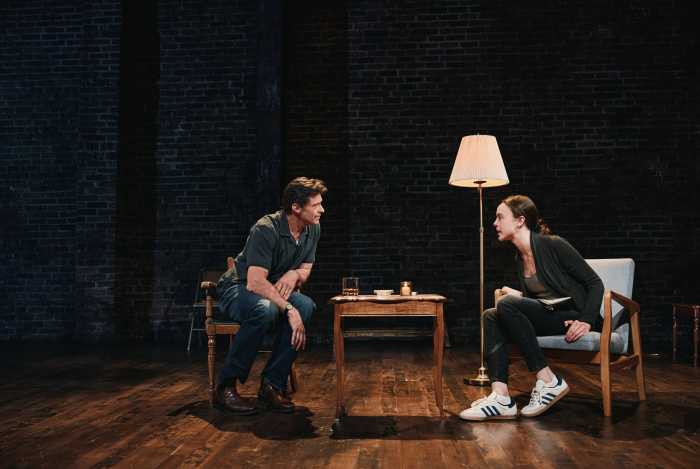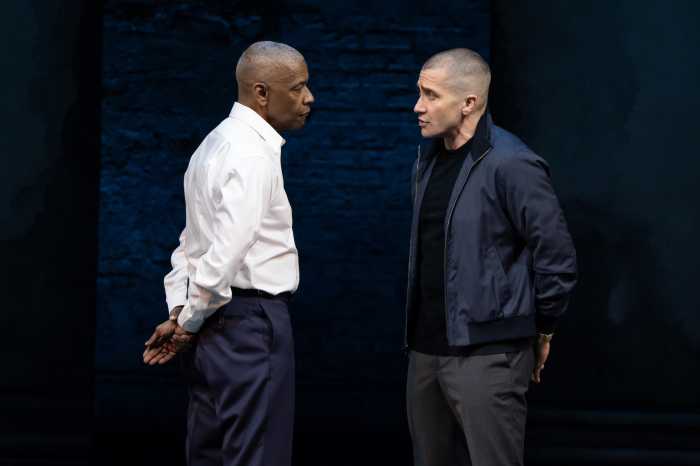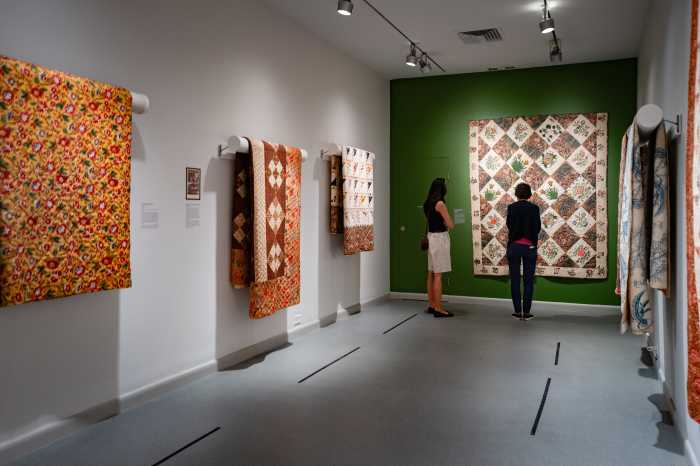Let’s call it “Bill & Ted’s Existential Adventure.”
Keanu Reeves and Alex Winter, forever linked as the slacker duo from “Bill & Ted’s Excellent Adventure” and its sequels, have reunited not for another time-travel comedy but “Waiting for Godot,” Samuel Beckett’s classic existential drama about time stopping, in a place where nothing happens, nothing changes, and the waiting never ends.
First staged in 1953, “Godot” is the cornerstone of absurdist theater: two tramps, Vladimir (Reeves) and Estragon (Winter), spend their days waiting for a mysterious figure named Godot, who never shows up. To pass the time, they argue, clown around, share scraps of memory, and are interrupted by the pompous Pozzo (Brandon Dirden), his servant Lucky (Michael Patrick Thornton), and a Boy who delivers the same message at the end of each act: Godot will not come today, but surely tomorrow.
This production is directed by Jamie Lloyd, the hotshot director behind stripped-down, starry Broadway revivals of “Sunset Boulevard,” “Betrayal,” and “A Doll’s House.” The Beckett estate is famously strict over directorial choices that stray away from the written text, but Lloyd clearly won some leeway.
Instead of the bare tree called for in the script, the set is a massive cylindrical tunnel resembling the Sarlacc pit from “Return of the Jedi.” Reeves and Winter climb it, slide down, and perch at its lip. Club music plays before the show begins, ominous chords underscore the Pozzo and Lucky scenes, and each act ends with the snap of a camera.
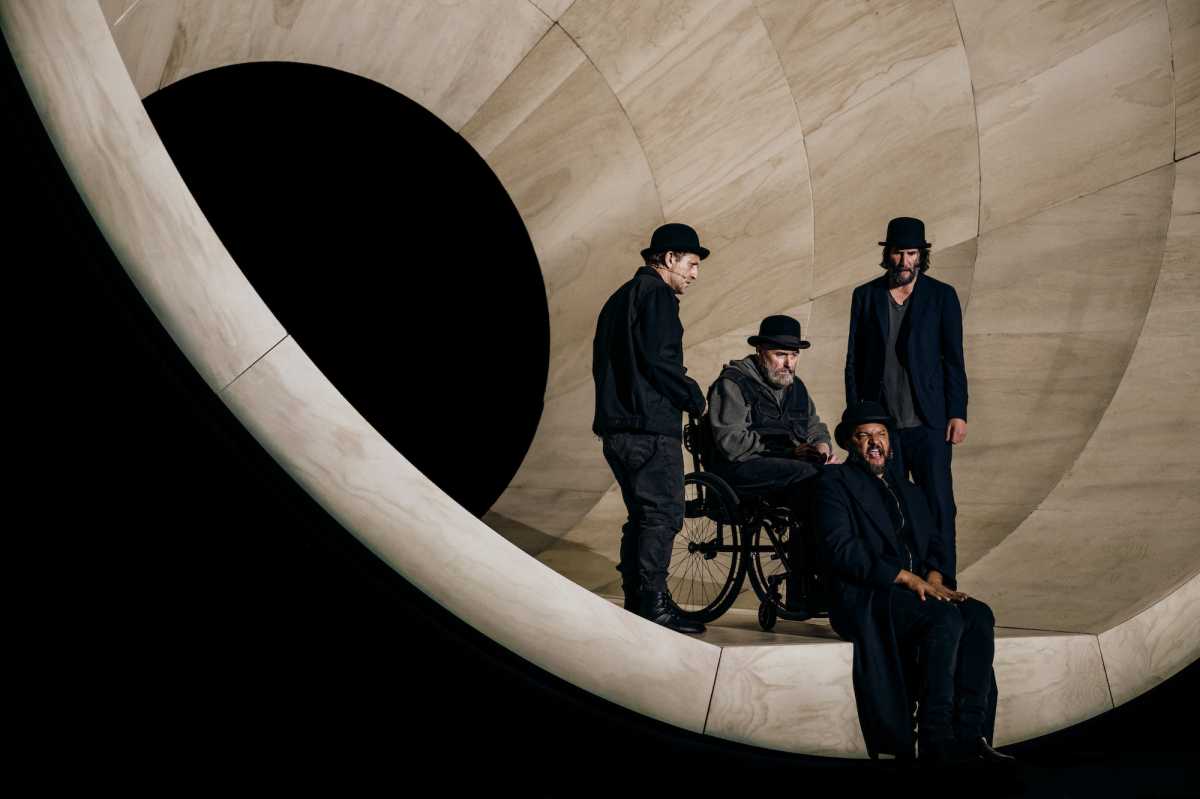
At one point, their voices echo through the space. These flourishes don’t always land, but they keep the play from feeling like a museum piece.
Reeves and Winter look ragged and homeless. Their performances are casual, built on decades of friendship. Reeves is restrained—cryptic, wide-eyed, oddly funny in his understatement. Winter is more emotional and unsettled, giving Estragon a nervous, vulnerable edge. Together, they come across like two men who really have been stuck with each other forever.
At times, they even break Beckett’s world open, glancing at the audience. In one startling moment, Estragon looks out and asks, “Are we boring you?” It’s cheeky, unexpected, and strangely fitting in a play that has always tested its audiences.
Dirden is flamboyant and menacing as Pozzo, a showman who dominates his scenes. Thornton, who uses a wheelchair, enters wearing a muzzle—an image that’s both startling and disturbing. Lucky’s famous monologue, often played as a breathless torrent, is here delivered like a television talking head under a spotlight. Likewise, Lucky’s frenetic dance is replaced with a sly “Chorus Line”-style hat tip.
A blend of pop-culture memory and Beckett’s bleakness gives the production its spark. When Estragon recalls how they looked respectable “in the nineties,” Beckett meant the 1890s. Here, the audience immediately thinks of the 1990s, when Reeves and Winter were young movie stars.
The pair also suddenly breaks into a Bill-and-Ted-style air guitar strum, complete with the goofy rock-riff sound effect. It’s easy to imagine Vladimir and Estragon as Bill and Ted themselves, older and adrift, waiting forever for Rufus to arrive again in his phone booth.
The production seems intent on reaching new audiences and making the play feel more accessible to people who know “Bill & Ted” and “The Matrix” rather than Beckett. Some will be hooked, and others will surely find the repetition unbearable and slip out at intermission. “Godot” has always divided audiences.
Reeves and Winter may not save the world this time, but their endless adventure in Beckett’s wasteland is a strange, curious, and surprisingly affecting experiment.
Hudson Theatre, 141 W. 44th St., godotbroadway.com. Through Jan. 4.



